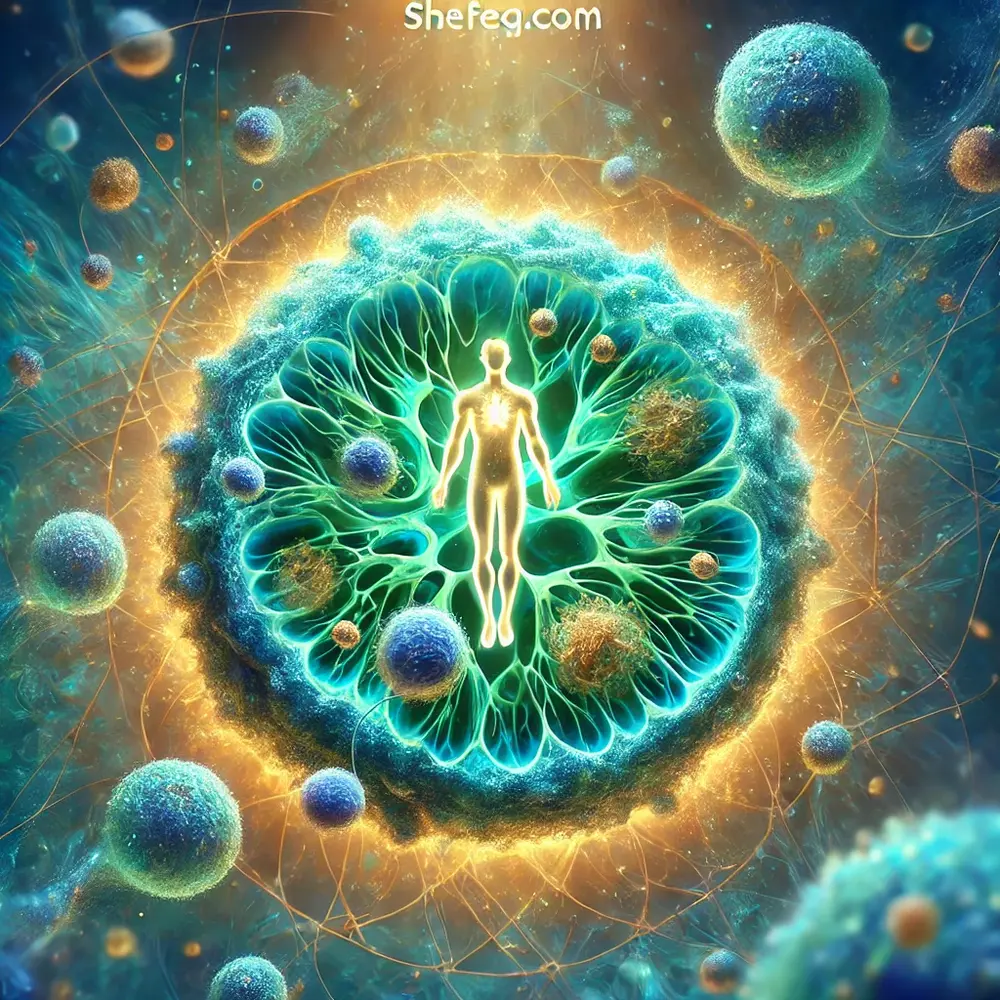INTRODUCTION: A Scientific Journey Within
Throughout history, the human body and its mysterious nature have captivated the attention of scientists, philosophers, and physicians. No matter how much technology, artificial intelligence, or robotics advance, the human body still holds secrets within its depths. One of those secrets is autophagy, a cellular process that delicately balances between life and death.
In this article, we will explore autophagy through a scientific, social, and philosophical lens, and examine its impact on the body, mind, and soul.
I. The Science of Autophagy: A Cell’s Self-Rescue Mechanism
Autophagy (from the Greek “autos” meaning self, and “phagein” meaning to eat) is a natural process of cellular cleansing and renewal. During autophagy, a cell breaks down and recycles damaged or unnecessary components using organelles called lysosomes, converting them into energy or raw material for building new structures.
This is not merely a biological function — it is an act of cellular rebirth essential for survival.
Main stages:
-
Recognition – detecting damaged organelles and proteins
-
Engulfment – enclosing them within a membrane structure called an autophagosome
-
Degradation – fusing with a lysosome, where enzymes break down the contents
-
Reuse – recycling the components as energy or raw materials
II. Autophagy and Health: The Balance Between Life and Death
Autophagy isn’t just about cleaning up cells. It plays a vital role in many areas of health:
-
Neurological diseases: Impaired autophagy has been observed in Alzheimer’s and Parkinson’s disease
-
Cancer: Autophagy can prevent cancer, but in some cases, may also support tumor cell survival
-
Aging: Efficient recycling of cellular parts slows down the aging process
-
Immunity: Linked to the clearance of harmful microbes and viruses
III. Fasting and Autophagy: From Religious Ritual to Scientific Mechanism
In many religions — including Islam, Christianity, and Buddhism — fasting has long been seen as a path to purify the soul and body. Modern science now confirms that fasting activates autophagy in the body.
During food deprivation for 16–24 hours, cells enter a state of “energy crisis” and begin breaking down internal waste as fuel. This results in cellular detox, inner discipline, and cognitive renewal.
IV. Autophagy and Societal Health: Mental Clarity for a New Generation
Today, obesity, chronic fatigue, stress, and attention disorders are increasingly common among young people. These conditions are often rooted in lifestyle habits — constant eating, physical inactivity, late sleep, and high-sugar diets.
A lifestyle that supports autophagy includes:
-
Intermittent fasting
-
Plant-based, natural nutrition
-
Regular physical activity
-
Stress management
-
Quality sleep
This isn’t only about personal health — it’s about building a healthier society. A healthy individual is the foundation of a healthy community.
V. Autophagy in Modern Science
In 2016, Japanese biologist Yoshinori Ohsumi was awarded the Nobel Prize for uncovering the molecular mechanisms of autophagy — marking a new era in biology and medicine.
Current research is expanding into:
-
Autophagy’s role in cancer therapies
-
Natural stimulators (e.g., curcumin, reishi mushroom) to slow aging
-
Genetic activation of autophagy
-
The relationship between autophagy and the gut microbiome
VI. Conclusion: Surviving by “Eating Yourself” — A Lesson for Humanity
Autophagy is more than biology — it’s a metaphor for life itself. Sometimes, to survive, we must eliminate what is old, harmful, or unnecessary inside us. Cells show us this truth every day — quietly, invisibly, yet powerfully.
Understanding this process and adopting a lifestyle that supports it is not just a scientific lesson — it’s a life philosophy for the next generation.

